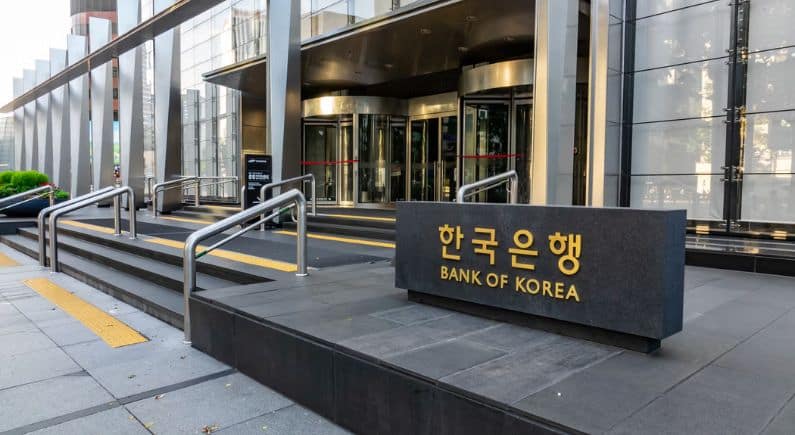- Roadshow to Rome
- Awards
- Exhibitors
- Speakers
- Media Partners
- News

The South Korean crypto landscape is transforming at a breakneck pace, and the latest message from the Bank of Korea (BoK) is clear: it is prepared to take the driver’s seat. In its recently released 2024 Payment and Settlement Report, the central bank underlined its commitment to proactively influence regulatory frameworks for the use of cryptocurrency, most specifically stablecoins.
South Korea has always had a complicated relationship with crypto. It is home to one of the most active crypto trading communities in the world, yet its regulators have often played catch-up with the rapid pace of technological change. From the 2017 ICO boom to the tightening of exchange regulations in 2021, it has been a bumpy ride.
In the Bank of Korea’s latest report, the central theme is evident: stability. The report discusses payment trends, regulatory issues, and most importantly, urges strong frameworks on crypto, particularly stablecoins. The central bank contends that to disregard stablecoins would be to invite monetary instability and financial risk—a bold turn for an institution usually assiduously risk-averse.
Stablecoins aim to combine the innovation of blockchain technology with the predictability of fiat currency, often pegged to stable assets like the US dollar or Korean won. Unlike more volatile cryptocurrencies like Bitcoin or Ethereum, the primary goal of stablecoins is price stability, making them potentially more suitable for everyday transactions and as a reliable store of value within the digital realm.
While they seem stable in theory, they rely on digital infrastructure that can fail. Hacks, algorithmic malfunctions, and mismanagement of reserves can lead to serious problems. The Bank of Korea cautions that these tokens are not foolproof and could act as Trojan horses—appearing stable on the surface while concealing systemic risks.
The virtual asset market of South Korea has grown dramatically, with its market capitalisation being over 100 trillion Won in 2024. This growth has been driven by a range of factors such as the greenlighting of spot Bitcoin and Ethereum Exchange Traded Funds (ETFs) in leading nations and the introduction of the EU’s Markets in Crypto Assets (MiCA) regulation.
In July 2024, South Korea enacted a landmark crypto law that introduced stricter KYC requirements, exchange oversight, and consumer protection mechanisms. But that was just the first phase. Now, the sequel is here: a second crypto law that focuses on stablecoins and provides operational clarity for crypto platforms.
The emphasis will be on offering straightforward directions regarding token listings, requiring transparent reporting obligations, setting guidelines on the reserve backing of stablecoins, and curbing money laundering and fraud. The aim is not to hold back growth but to drive out bad players and promote trust in digital finance.
Unlike in the past, where regulators reacted to crypto developments, the BoK is stepping up to co-create the rules of the game. They aim to make sure innovation does not come at the cost of stability. Expect the BoK to start flexing its muscles with policy drafts, public consultations, and inter-agency collaborations. By contributing to legislation early on, the central bank hopes to prevent financial chaos rather than clean it up later.
Let’s break it down: If more people start using stablecoins for everyday transactions, it could undermine the central bank’s control over the money supply. This is significant because tools like interest rate adjustments and liquidity injections would become less effective.
The European Union’s MiCA framework, the US SEC’s crackdown on crypto firms, and Singapore’s balanced approach all offer different flavours of regulation. South Korea seems to be carving out a path that sits somewhere in the middle—protective, but not prohibitive. With global political dynamics shifting post-Trump, especially in economic leadership and international collaboration, South Korea is leaning toward its regulatory sovereignty.
In fact, many crypto firms welcome the clarity. A defined framework can be a launchpad, not a roadblock. If the rules are fair and consistently applied, South Korea could emerge as a crypto regulation role model for the rest of the world.